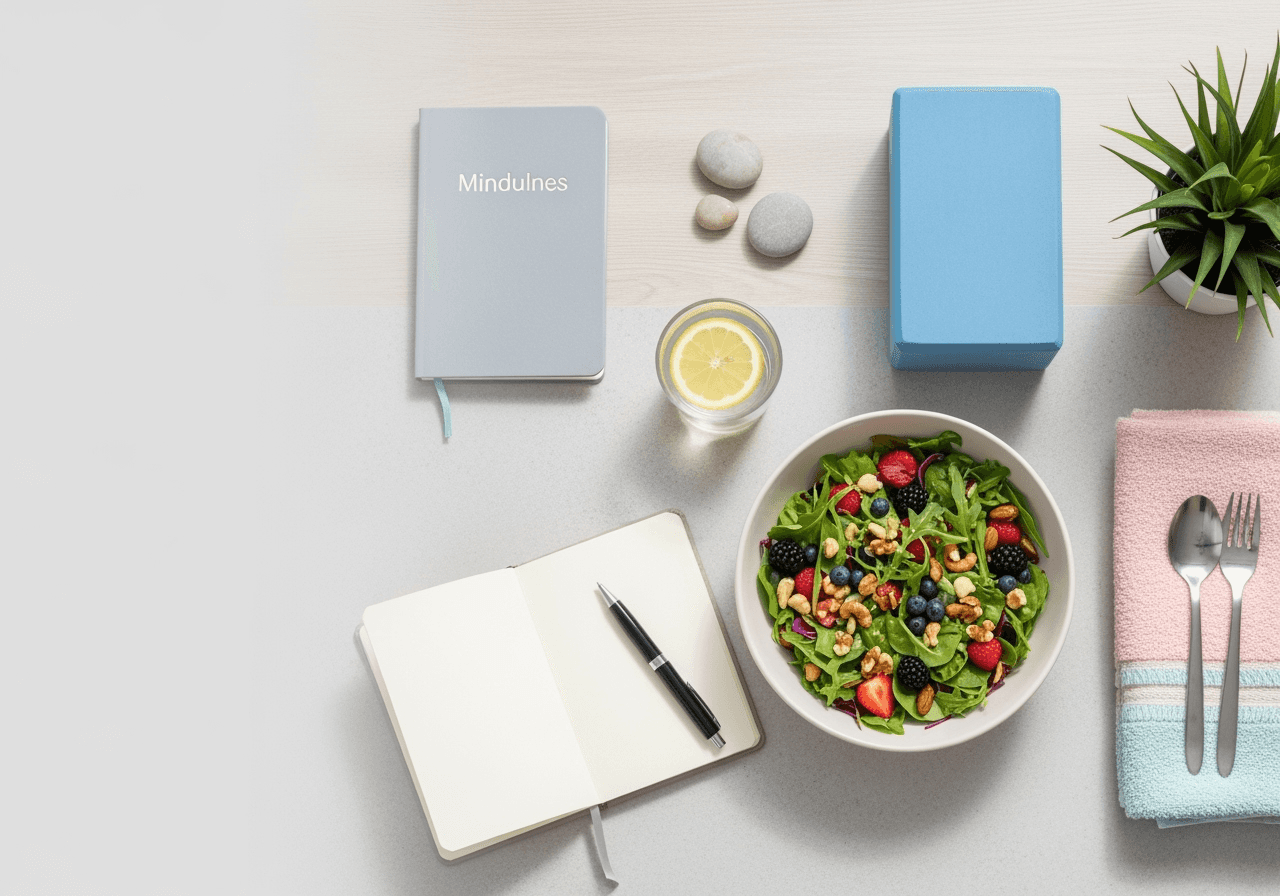
Post-IVF Treatment Diet and Lifestyle Tips
13 Oct, 2025
 Healthtrip
Healthtrip- The Importance of Diet After IVF Treatment
- Essential Foods to Include in Your Post-IVF Diet
- Foods to Avoid After IVF Treatment
- Lifestyle Adjustments for a Successful Post-IVF Journey
- Managing Stress and Emotional Well-being After IVF < li>Seeking Support from Hospitals
- Physical Activity and Exercise Guidelines
- Conclusion: Embracing a Healthy Future After IVF
Nourishing Your Body: The Post-IVF Diet
After undergoing the embryo transfer, focusing on a balanced and nutritious diet becomes even more crucial. It's not about dieting, but rather about providing your body with the essential building blocks it needs to support implantation and early pregnancy. Think of your body as a fertile garden; you need to nourish the soil so that the seed can take root and flourish. Incorporate a variety of whole foods into your daily meals, prioritizing fruits, vegetables, lean proteins, and whole grains. Leafy greens like spinach and kale are packed with folate, crucial for fetal development, while lean proteins like chicken and fish provide essential amino acids. Complex carbohydrates, such as brown rice and quinoa, offer sustained energy without causing drastic blood sugar spikes. Imagine your plate as a colorful canvas, filled with vibrant ingredients that contribute to your overall well being. If you are undergoing IVF treatment at, say, Bangkok Hospital, consider consulting with a nutritionist who can tailor a diet plan that complements your specific needs and any recommendations from your fertility specialist. Remember, every small change you make can contribute to a healthier and more supportive environment for your growing potential.
Most popular procedures in India
Hydration is Key After IVF
Water, often underestimated, plays a vital role in every bodily function, especially during the post-IVF period. Adequate hydration supports blood flow, which is essential for delivering nutrients to the uterus and the developing embryo. Dehydration can lead to various challenges, potentially impacting implantation. Imagine your body as a lush landscape; water is the lifeblood that keeps everything thriving. Aim for at least eight glasses of water per day, and consider incorporating hydrating foods like cucumbers, watermelon, and soups into your diet. Herbal teas, like chamomile or ginger, can also be soothing and contribute to your fluid intake, but be sure to check with your doctor at Vejthani Hospital or elsewhere before consuming herbal teas, as some may not be suitable during early pregnancy. Pay attention to your body's cues; if you feel thirsty, drink up! The simple act of staying hydrated can make a significant difference in creating a nurturing environment for your potential pregnancy. Remember, every drop counts towards building a healthier and more supportive foundation.
Gentle Movement and Exercise
While intense workouts might be tempting for stress relief, the post-IVF period calls for a more gentle approach to physical activity. Think of your body as a delicate ecosystem, requiring balance and harmony. Strenuous exercise can potentially disrupt hormone levels and blood flow, which is best avoided during this critical time. Opt for low-impact activities like walking, light yoga, or swimming. A leisurely stroll in the park can not only boost circulation but also help soothe your mind. Gentle yoga poses, designed for relaxation and stress reduction, can create a sense of calm and well-being. Remember, the goal is to nurture your body, not to push it to its limits. If you're receiving treatment at, for example, Fortis Memorial Research Institute, Gurgaon, consult with your doctor about appropriate exercise levels for your specific situation. Listen to your body, and don't hesitate to rest when you feel tired. Even a short, gentle activity can contribute to a healthier and more balanced environment for potential implantation and growth. Prioritizing rest and relaxation can be just as beneficial as any workout.
Wellness Treatments
Give yourself the time to relax
Lowest Prices Guaranteed!

Lowest Prices Guaranteed!
The Importance of Rest and Relaxation
Stress is a notorious disruptor of hormonal balance, and high stress levels can potentially hinder implantation. Prioritizing rest and relaxation is crucial during the post-IVF period to create a calm and supportive environment. Think of your mind as a tranquil lake; you need to minimize disturbances to allow for clarity and peace. Engage in activities that bring you joy and help you unwind, whether it's reading a good book, listening to soothing music, spending time in nature, or practicing mindfulness. Consider incorporating relaxation techniques like meditation or deep breathing exercises into your daily routine. Even a few minutes of mindful breathing can help lower stress hormones and promote a sense of calm. If you're undergoing treatment at facilities such as Memorial Bahçelievler Hospital, explore options for stress management support, such as counseling or support groups. Remember, taking care of your mental and emotional well-being is just as important as taking care of your physical health. By creating a peaceful and harmonious environment within yourself, you can significantly enhance your chances of a successful pregnancy. Embrace the power of rest and relaxation, and allow yourself to fully nurture your inner well-being.
Supplements and Medications
Following your doctor's instructions regarding medications and supplements is paramount during the post-IVF period. These medications may be designed to support the uterine lining and prevent early miscarriage. Think of them as carefully prescribed tools, designed to support and enhance your fertility journey. It's crucial to adhere to the prescribed dosage and schedule, and never make changes without consulting your fertility specialist. Some over-the-counter medications and supplements can interfere with fertility treatments, so always inform your doctor about everything you're taking. Certain supplements, like folic acid and vitamin D, may be recommended to support a healthy pregnancy, but it's essential to get personalized recommendations from your healthcare provider at NMC Specialty Hospital, Al Nahda, Dubai, or your chosen clinic. Remember, every medication and supplement plays a specific role, and following your doctor's guidance ensures that you're providing your body with the optimal support it needs. Open communication with your medical team is essential for a safe and successful post-IVF journey. By working together, you can create a comprehensive plan that maximizes your chances of a positive outcome.
The Importance of Diet After IVF Treatment
Embarking on the journey of In Vitro Fertilization (IVF) is a significant step towards building or expanding your family. The process itself can be physically and emotionally demanding, and once the embryo transfer is complete, a new chapter begins. A crucial, often overlooked aspect of this post-IVF period is your diet. Think of it as laying the groundwork for a successful pregnancy. The food you consume plays a vital role in supporting implantation, nurturing the developing embryo, and maintaining your overall health. It's not just about eating anything; it's about nourishing your body with the right nutrients to optimize your chances of a healthy pregnancy. A well-planned diet can help regulate hormone levels, reduce inflammation, improve blood flow to the uterus, and strengthen the immune system. It's a holistic approach, considering not only your physical well-being, but also your emotional state. For women who have undergone fertility treatments, the importance of diet cannot be overstated. It's an investment in your future and the future of your child. Consider it a vital complement to the medical interventions you've already undertaken, enhancing their effectiveness and bolstering your body's natural capabilities. Remember, at Healthtrip, we understand that navigating this journey can be overwhelming. We're here to provide you with the resources and support you need to make informed decisions about your health, including personalized dietary recommendations and access to world-class medical expertise at hospitals like Fortis Memorial Research Institute, Gurgaon and Max Healthcare Saket, ensuring you receive the best possible care during this critical time.
Essential Foods to Include in Your Post-IVF Diet
So, you've had your IVF procedure, and you're eager to do everything you can to support a successful outcome. One of the most impactful things you can control is your diet. Think of it as building a cozy, nutrient-rich nest for your little embryo to settle into! Let's talk about some essential foods to include in your post-IVF diet. First, embrace the power of protein! Lean proteins like chicken, fish, beans, and lentils are crucial for cell growth and repair, providing the building blocks for the developing embryo. Aim for protein in every meal to keep your energy levels stable and support hormonal balance. Next, load up on those vibrant fruits and vegetables. Think of a rainbow on your plate! Berries are packed with antioxidants, which can help reduce inflammation and protect cells from damage. Leafy greens like spinach and kale are rich in folate, essential for neural tube development. Colorful veggies like carrots and sweet potatoes provide vitamin A, vital for cell growth and vision development. Don't forget about healthy fats! Avocados, nuts, seeds, and olive oil are your friends. These fats are important for hormone production and brain development. They also help your body absorb fat-soluble vitamins like A, D, E, and K. Complex carbohydrates are your go-to for sustained energy. Opt for whole grains like quinoa, brown rice, and oats. These provide fiber, which helps regulate blood sugar levels and keeps you feeling full and satisfied. Finally, stay hydrated! Water is essential for all bodily functions, including the transport of nutrients to the developing embryo. Aim for at least eight glasses of water a day. Remember, this isn't just about eating healthy; it's about nourishing your body with the specific nutrients it needs to support a healthy pregnancy. Healthtrip can connect you with nutritionists and fertility specialists at renowned hospitals like NMC Specialty Hospital, Al Nahda, Dubai and Saudi German Hospital Cairo, Egypt who can create a personalized meal plan tailored to your individual needs and medical history, maximizing your chances of success.
Foods to Avoid After IVF Treatment
Navigating the post-IVF period involves more than just adding beneficial foods to your diet; it also requires being mindful of what to avoid. Think of it as clearing away any obstacles that might hinder implantation and a healthy pregnancy. So, what should you steer clear of? First and foremost, limit your intake of processed foods. These are often high in unhealthy fats, sugar, and sodium, and low in essential nutrients. Think of them as empty calories that offer little to no benefit to your body or the developing embryo. Say "no" to sugary drinks like sodas and fruit juices. These can cause blood sugar spikes and crashes, which can disrupt hormone balance and potentially impact implantation. Stick to water, herbal teas, or infused water for hydration. Reduce your caffeine consumption. While a small amount of caffeine may be okay for some, excessive amounts can interfere with hormone levels and potentially increase the risk of miscarriage. Consider switching to decaffeinated options or herbal teas. Avoid alcohol completely. Alcohol can negatively impact fertility and pregnancy, so it's best to abstain during the post-IVF period. Limit your intake of refined carbohydrates. These are found in white bread, pasta, and pastries. They can cause rapid spikes in blood sugar levels, similar to sugary drinks. Opt for complex carbohydrates like whole grains instead. Be cautious with certain types of fish. Some fish, like swordfish and tuna, are high in mercury, which can be harmful to the developing fetus. Choose low-mercury options like salmon and shrimp. Limit your intake of unpasteurized dairy products. These can contain harmful bacteria that can cause infections. Always choose pasteurized milk, cheese, and yogurt. Remember, your body is working hard to support a potential pregnancy, and avoiding these foods can help create a more nurturing environment. Being mindful of your diet is a crucial step in optimizing your chances of success. Healthtrip understands the importance of informed choices. We can provide access to expert advice from hospitals like Bangkok Hospital or Vejthani Hospital, ensuring you have the knowledge and support to make the best dietary decisions for your post-IVF journey, empowering you to take control of your health and well-being.
Also Read:
Lifestyle Adjustments for a Successful Post-IVF Journey
Embarking on the post-IVF journey is like navigating uncharted waters, demanding a conscious shift in lifestyle to nurture the delicate seed of hope. It’s more than just a diet; it’s a holistic approach encompassing sleep, habits, and your immediate environment. Think of your body as a garden, and your lifestyle as the tending it needs to flourish. Are you providing enough sunlight, water, and protection from pests? Simple adjustments can significantly impact the outcome. Prioritize quality sleep, aiming for at least seven to eight hours each night. This isn't just about feeling rested; sleep is crucial for hormonal balance and overall well-being, playing a surprisingly vital role in supporting implantation and early pregnancy. A regular sleep schedule, a dark and quiet room, and avoiding screen time before bed are all excellent starting points. Consistency is key – even on weekends! It’s tempting to fall back into old habits, but remember the incredible journey you’ve undertaken and the precious potential you're nurturing. Small changes, consistently applied, can make a world of difference.
Breaking Unhealthy Habits
Now is the perfect time to gently nudge away any unhealthy habits that might inadvertently hinder your progress. Smoking and excessive alcohol consumption are definite no-nos, as they can negatively affect blood flow and hormonal balance, potentially impacting implantation and increasing the risk of complications. It's not about deprivation; it's about creating an optimal environment for success. Think of it as clearing the path for your little traveler. And, while a daily caffeine fix might seem harmless, it's prudent to moderate your intake. High caffeine levels can sometimes interfere with hormonal regulation. Consider swapping that extra cup of coffee for herbal tea; chamomile or ginger tea can be soothing and beneficial. Similarly, be mindful of exposure to environmental toxins. Reducing your contact with harsh chemicals and pollutants can contribute to a healthier internal environment. By making these thoughtful adjustments, you’re actively creating a nurturing space for your potential pregnancy to thrive. Remember, you are not just changing your lifestyle; you are enhancing the environment for new life to flourish. This is a journey of self-care and creating conducive atmosphere for success.
Also Read:
Managing Stress and Emotional Well-being After IVF
The emotional rollercoaster of IVF doesn't magically stop after the procedure; in many ways, it intensifies. The waiting period, often referred to as the "two-week wait," can feel like an eternity, filled with anticipation, anxiety, and a constant internal dialogue. It's crucial to acknowledge these feelings and actively prioritize your mental and emotional well-being. Think of your mind as a fertile ground, needing as much care as your body. High stress levels can release hormones that might interfere with implantation and early pregnancy. So, how do you navigate this emotional minefield? Firstly, be kind to yourself. Allow yourself to feel whatever emotions arise without judgment. It's okay to feel anxious, hopeful, or even disappointed. These are all valid responses to a deeply significant experience. Secondly, develop a toolkit of stress-management techniques. Mindfulness practices, such as meditation or deep breathing exercises, can be incredibly effective in calming the nervous system and bringing you back to the present moment. Even a few minutes of focused breathing each day can make a difference. Regularly engaging in enjoyable activities is also key. Whether it's reading a good book, listening to music, spending time in nature, or pursuing a hobby, make time for activities that bring you joy and help you unwind. The goal is to create moments of peace and respite amidst the emotional storm.
Seeking Emotional Support
Never underestimate the power of a strong support system. Talking to a therapist or counselor specializing in fertility issues can provide a safe and confidential space to process your emotions and develop coping strategies. Support groups, either online or in person, can also be invaluable, connecting you with others who understand what you're going through. Sharing your experiences and hearing from others can be incredibly validating and empowering. Don’t hesitate to lean on your partner, friends, or family members for emotional support. Open communication is crucial. Let them know what you need, whether it's a listening ear, a distraction, or simply a hug. Remember, you don't have to go through this alone. Healthtrip understands the emotional toll of fertility treatments and can connect you with resources and support networks to help you navigate this challenging journey. We believe that emotional well-being is an integral part of the IVF process, and we are committed to providing you with the care and support you need to thrive.
Also Read:
Seeking Support from Hospitals
Navigating the post-IVF period often requires ongoing medical support and monitoring. Your fertility clinic or hospital plays a crucial role in guiding you through this phase, providing essential services such as blood tests, ultrasound scans, and medication management. Choosing the right medical facility is paramount, and Healthtrip can help you connect with reputable hospitals offering comprehensive post-IVF care. Look for hospitals with experienced fertility specialists, state-of-the-art equipment, and a patient-centered approach. They should prioritize your comfort and well-being, providing clear and compassionate guidance throughout the process. Regular check-ups are vital to monitor hormone levels, assess the progress of implantation, and detect any potential complications early on. Your doctor can also adjust your medication dosage as needed to optimize your chances of a successful pregnancy. Don’t hesitate to ask questions and voice any concerns you may have. A good healthcare provider will be patient, understanding, and responsive to your needs. Remember, you are an active participant in your care, and your voice matters.
Hospitals for Post-IVF Support
Healthtrip partners with several reputable hospitals that offer exceptional post-IVF care, including Fortis Escorts Heart Institute, Fortis Shalimar Bagh, Fortis Hospital, Noida, Fortis Memorial Research Institute, Gurgaon, Max Healthcare Saket, Saudi German Hospital Alexandria, Egypt, Saudi German Hospital Cairo, Egypt, Memorial Bahçelievler Hospital, Memorial Sisli Hospital, NMC Specialty Hospital, Al Nahda, Dubai, Thumbay Hospital, Vejthani Hospital, Yanhee International Hospital and LIV Hospital, Istanbul. These facilities have a proven track record of success and are committed to providing personalized care to each patient. Consider factors such as location, cost, and patient reviews when making your decision. Healthtrip can provide you with detailed information on each hospital, including doctor profiles, treatment options, and pricing, to help you make an informed choice. We understand that selecting the right hospital is a significant decision, and we are here to support you every step of the way. Our goal is to connect you with a healthcare provider who will provide you with the best possible care and help you achieve your dream of parenthood.
Physical Activity and Exercise Guidelines
Maintaining a healthy lifestyle after IVF includes appropriate physical activity, but it's essential to strike the right balance. Overexertion can potentially interfere with implantation, while complete inactivity can be detrimental to your overall well-being. The key is to find a moderate exercise routine that promotes blood flow, reduces stress, and keeps you feeling energized. Light activities such as walking, swimming, or gentle yoga are generally considered safe and beneficial. Walking is a fantastic option, as it's low-impact, easily accessible, and can be tailored to yourFitness Level. Aim for a 30-minute walk most days of the week. Swimming is another excellent choice, as it's gentle on the joints and provides a full-body workout. Yoga, particularly restorative yoga, can help reduce stress and improve circulation. However, avoid poses that put pressure on your abdomen or involve deep twists. Listen to your body and don't push yourself too hard. If you feel any pain or discomfort, stop immediately. It's always best to err on the side of caution during this delicate period. High-intensity exercises, such as running, weightlifting, or strenuous aerobics, should generally be avoided, at least during the initial weeks after the embryo transfer. These activities can increase your core body temperature and potentially interfere with implantation.
Consulting Your Doctor
It's always advisable to consult your doctor or a qualified fitness professional for personalized exercise recommendations. They can assess your individual needs and provide guidance based on your medical history and the specifics of your IVF treatment. They might suggest specific exercises to avoid or modify based on your situation. Remember, the goal is to support your body and create a nurturing environment for a potential pregnancy. Exercise should be a source of enjoyment and stress relief, not a cause of anxiety or discomfort. As your pregnancy progresses (if successful), your exercise routine may need to be further adjusted. Your doctor can provide guidance on safe and appropriate exercises for each trimester. Healthtrip encourages you to prioritize your health and well-being throughout the IVF journey. A balanced lifestyle, including moderate exercise, a nutritious diet, and stress management techniques, can significantly improve your chances of success and contribute to a healthy pregnancy. We are here to provide you with the resources and support you need to make informed decisions and take control of your health.
Conclusion: Embracing a Healthy Future After IVF
The journey after IVF is a period of immense hope, anticipation, and self-care. By prioritizing your diet, lifestyle, mental well-being, and physical activity, you are actively creating a nurturing environment for a potential pregnancy. Remember that every small step you take contributes to your overall health and increases your chances of success. It's essential to be patient, kind to yourself, and celebrate every milestone along the way. The post-IVF period can be emotionally challenging, but with the right support and resources, you can navigate this journey with confidence and grace. Healthtrip is committed to being your partner in this process, providing you with access to top-notch medical facilities, experienced healthcare professionals, and valuable information to empower you to make informed decisions. Remember, you are not alone. Many women have successfully navigated the post-IVF period and gone on to have healthy pregnancies and beautiful families and Healthtrip is here to help you achieve your dreams of parenthood by providing comprehensive assistance. The team at Healthtrip is committed to assist you with navigating through the challenges and turning your dreams into reality.
Related Blogs

Comparing Success Rates of Joint Replacement Across Healthtrip Hospitals
Detailed guide on joint replacement, featuring doctors, hospitals, risks, recovery,

Latest Techniques Used for Joint Replacement in India via Healthtrip
Detailed guide on joint replacement, featuring doctors, hospitals, risks, recovery,
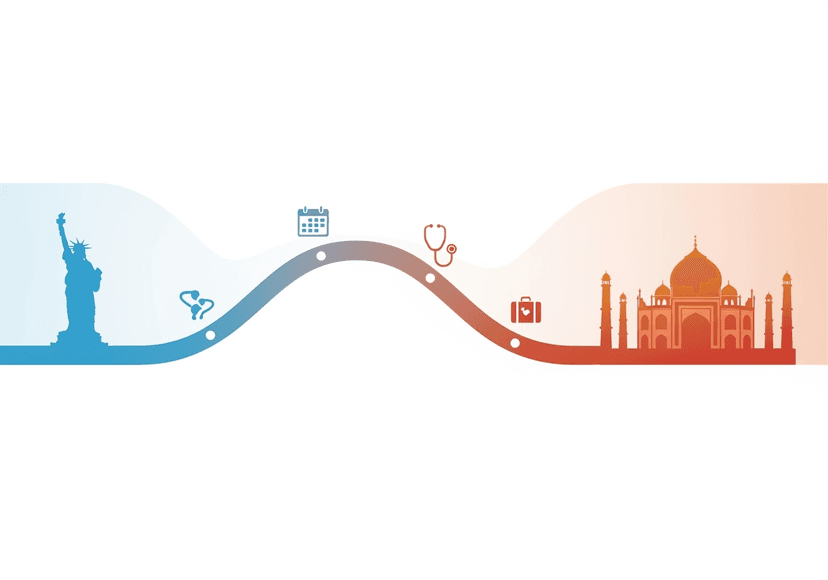
Healthtrip's Process for Booking Your Joint Replacement in India
Detailed guide on joint replacement, featuring doctors, hospitals, risks, recovery,
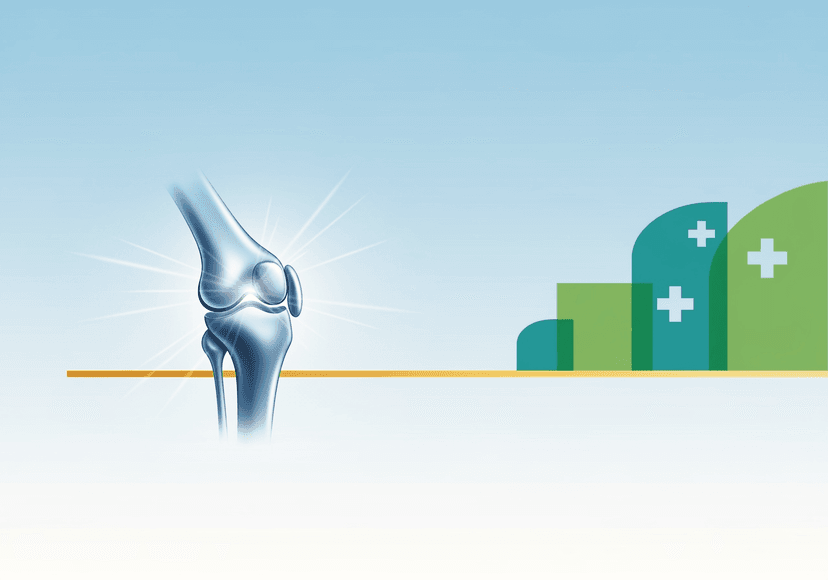
Best Doctors for Joint Replacement in Top Healthtrip Hospitals
Detailed guide on joint replacement, featuring doctors, hospitals, risks, recovery,
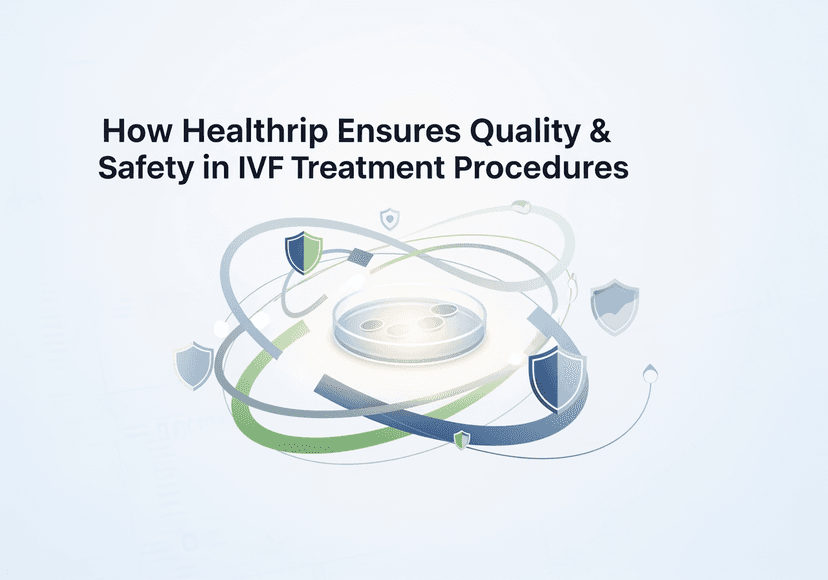
How Healthtrip Ensures Quality & Safety in IVF Treatment Procedures
Detailed guide on ivf treatment, featuring doctors, hospitals, risks, recovery,
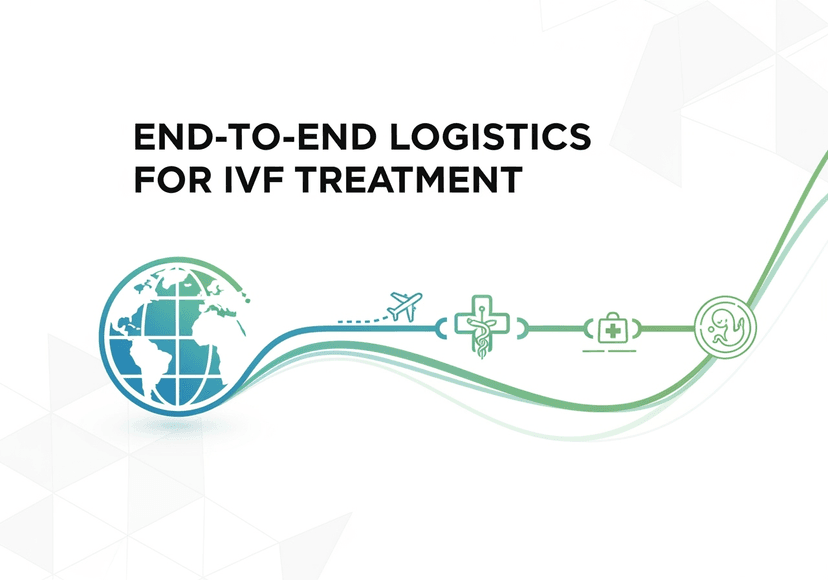
End-to-End Logistics for IVF Treatment with Healthtrip's Support
Detailed guide on ivf treatment, featuring doctors, hospitals, risks, recovery,










